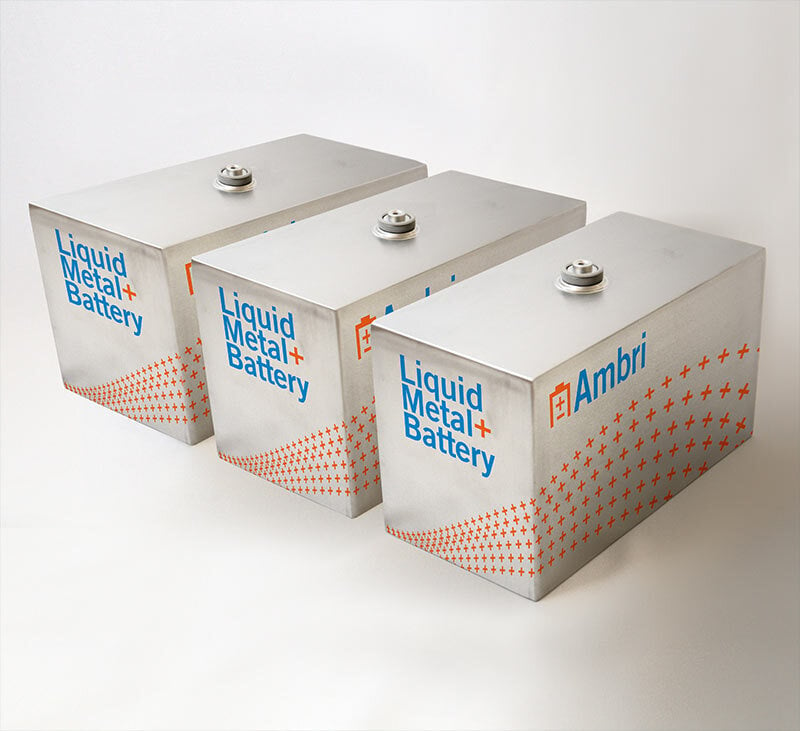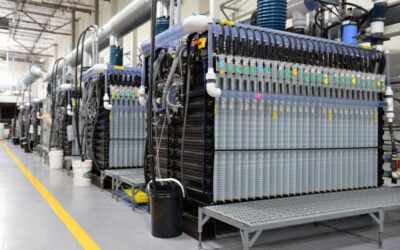
A liquid metal battery storage system has been commissioned at a Microsoft data centre, reducing the software giant’s use of fossil fuels and enabling it to access ancillary service energy markets.
Technology provider Ambri, which developed the proprietary high temperature battery, announced yesterday that the system has been successfully commissioned at an undisclosed data centre location, thought to be in the US.
The battery tech, spun out of labs at MIT by company founder Professor Donald Sadoway, is aimed at providing a low-cost, long-duration energy storage resource based on abundant materials and designed to be safe from the risk of thermal runaway, which can cause fires in lithium-ion batteries.
It uses anodes of liquid calcium alloy and a molten salt electrolyte with solid particles of antimony in the cathodes, arranged into stainless steel containers. Ambri received key UL1973 safety accreditation for its system in July.
Try Premium for just $1
- Full premium access for the first month at only $1
- Converts to an annual rate after 30 days unless cancelled
- Cancel anytime during the trial period
Premium Benefits
- Expert industry analysis and interviews
- Digital access to PV Tech Power journal
- Exclusive event discounts
Or get the full Premium subscription right away
Or continue reading this article for free
The technology was recently picked out for a demonstration project by US utility company Xcel and Ambri received an order in June for a 300MW/1,400MWh project in South Africa.
At the Microsoft data centre, the battery system is integrated with a UPS solution provided by energy management and automation group Schneider Electric. Output and capacity of the system was also undisclosed.
“Ambri’s batteries will help improve Microsoft’s datacenter operations while delivering important environmental and commercial benefits,” Ambri’s chief commercial officer Adam Briggs said.
Microsoft’s Upshur Quinby, energy innovation manager at the company’s Datacenter Advanced Development team, said the project provides a pathway to achieving goals of running on 100% renewable power and replacing diesel backup generators by 2030, all while maintaining reliable service.
“Enhancing energy storage capabilities — including implementing long duration battery solutions for datacenters — is critically important to our mission. With this partnership, we are strengthening our commitment to sustainability and taking another step in our work to support the grid with ancillary services and shifting,” Quinby said.
In July, Microsoft also equipped a data centre site in Ireland with a grid-interactive battery storage system, that one based on lithium-ion technology.
Microsoft’s deployments of battery tech have echoes of a recent project by Google, which deployed a lithium-ion battery energy storage system (BESS) at a data centre in Belgium, with similar aims.
Both Microsoft and Google are members of the Long Duration Energy Storage Council (LDES Council), which seeks to advance the utilisation of LDES technologies. Additionally, Energy-Storage.news reported yesterday that Microsoft has signed up to the Energy Storage Solutions Consortium, which seeks to assess and maximise the greenhouse gas (GHG) reduction potential of the available technologies.





